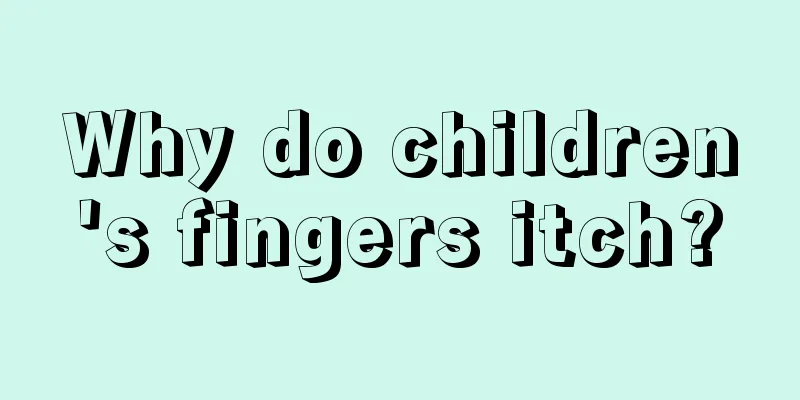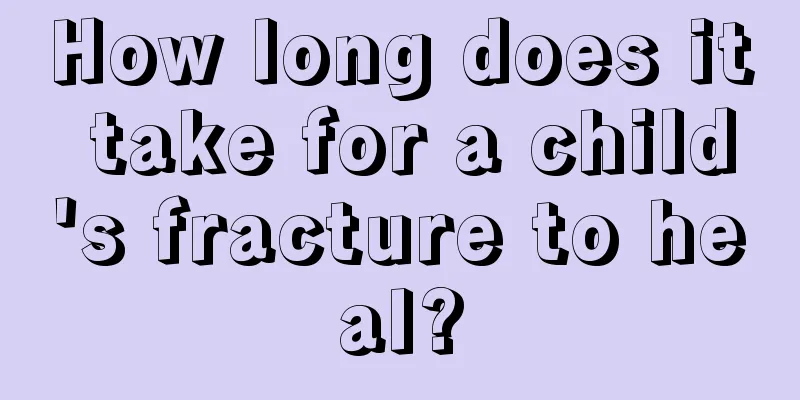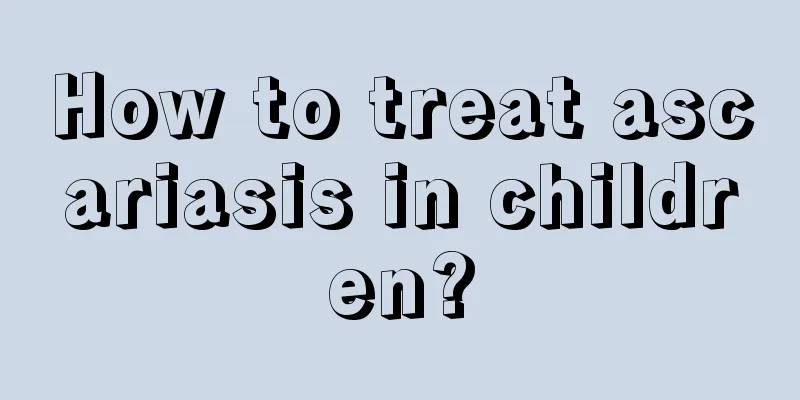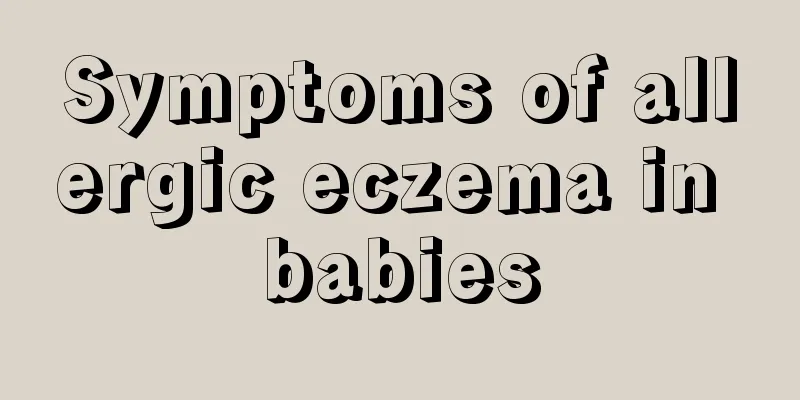What to do if your baby has a protruding spine
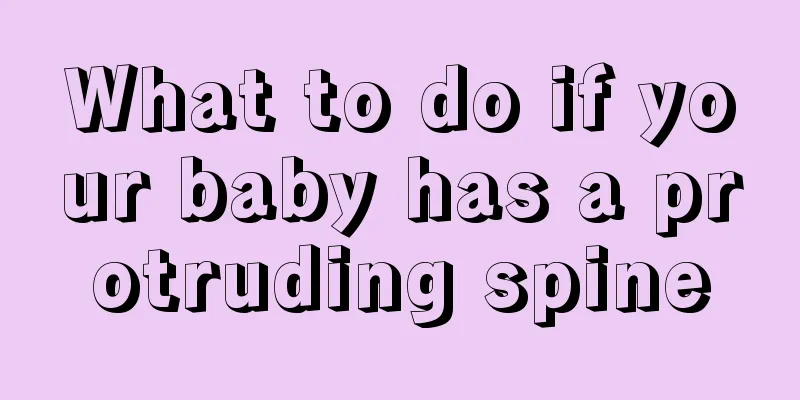
|
Spinal herniation is a common disease among working people. Long-term labor causes excessive pressure on the spine, which leads to spinal herniation. However, with the changes in the environment, many babies and even infants have developed spinal herniation, which makes many parents very worried. Spinal herniation is easier to treat in the early stages, but many parents do not know about it and only regret it later. So how can you detect spinal herniation in your baby and what should you do if your baby has spinal herniation? First, when bathing the child, pay attention to whether the child's back is symmetrical or has any local bulge. If you are confused, let the child bend forward and keep the knees straight, and stand on the opposite side of the child. If there is asymmetry, go to the hospital for an X-ray examination. The second is to check whether the skin has abnormal hair pigmentation or tumor-like protrusions. Abnormal hair often indicates deformities such as spina bifida, while leukoplakia or multiple subcutaneous lumps indicate the possibility of neurofibroma. The third is to check whether the child has gait abnormalities. If so, check whether the pelvis is level. Since different scoliosis occur at different ages, children should be examined regularly to avoid delays in diagnosis and treatment. Currently, there are two treatment methods for congenital scoliosis: surgical treatment and non-surgical treatment. Non-surgical treatment can play a certain role in delaying the progression of deformity and postponing the time of surgery. "However, non-surgical treatment cannot prevent the progression of the deformity. Only surgical treatment can truly correct the deformity and prevent it from getting worse." Professor Xu Hongwen pointed out that for congenital scoliosis, surgery should be performed as early as possible. Because spinal deformities often become very serious when people are older, surgical treatment is very difficult, the risk of nerve damage is also very high, and more medical expenses are required. Currently, the minimum surgical age for congenital scoliosis has been advanced from 4 years old to 1 and a half years old. Clinically, a set of mature technologies have been developed for the treatment of congenital scoliosis. With the development of various monitoring methods, corrective surgery for congenital scoliosis has become relatively safe, and the vast majority of patients can achieve good results. Through the above introduction, we understand that only timely discovery by parents can prevent further harm of spinal herniation to the baby, and the earlier the treatment surgery for spinal herniation is performed, the better. Therefore, when parents find that their baby has the above conditions, they must take the baby to a regular hospital for examination in time to achieve early detection and early treatment. We also wish all patients good health. |
<<: Knowledge about measuring trace elements for children
>>: What should I do if my child hits his head on the ground?
Recommend
Introduction to acute tonsillitis in children
Acute tonsillitis in children has a great impact ...
What should I do if my five-year-old baby has tooth decay?
It is very troublesome when a child has tooth dec...
What causes shortness of breath in children?
Shortness of breath is a common symptom among man...
What's wrong with a four-year-old child waking up with a nosebleed in the middle of the night?
It is relatively common for a four-year-old child...
Baby beef dumplings
Those who have babies at home know that you can’t...
What is the cause of hangnails on children's hands?
Parents will be very worried when they find hangn...
Is it normal for babies to be breathing rapidly?
Newborn babies need a long period of sleep to ens...
Baby has a fever and is breathing heavily. Let's understand the root cause
Some babies will breathe more heavily after they ...
Symptoms of vitamin deficiency in children
Vitamins are essential trace elements for the hum...
What to do if your newborn rolls his eyes
Care for newborns must be comprehensive. New moth...
The harm of enema for nine-month-old babies
Try not to use enema treatment on 9-month-old bab...
What should I do if my child has a serious food preference?
It is a common phenomenon that children have pick...
What is the method of circumcision surgery for children?
Many children are born with long foreskin. Most p...
How many months does it take for a baby to straighten its legs?
When a baby is born in the family, parents will g...
What to do if your child's tongue is white
In our country's traditional Chinese medicine...

